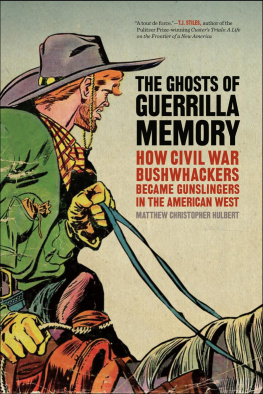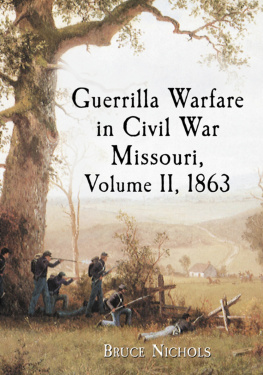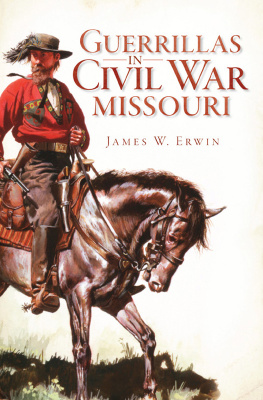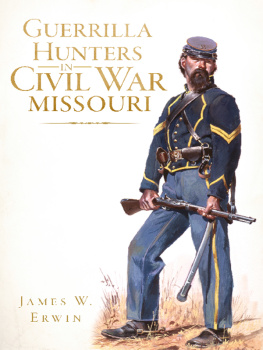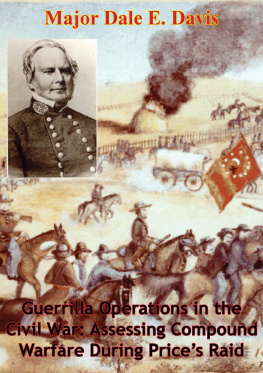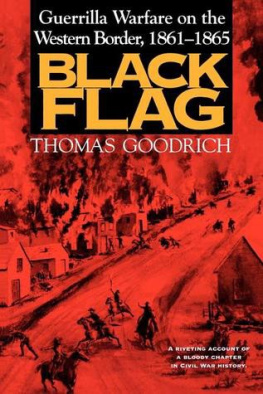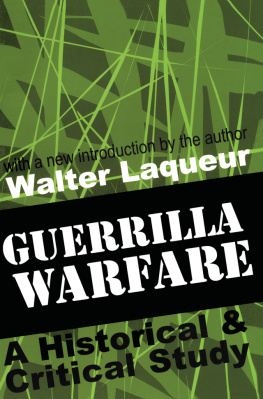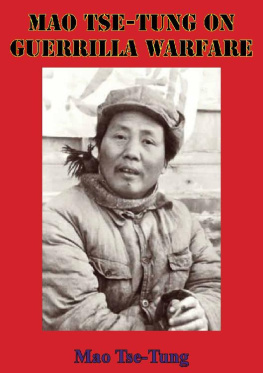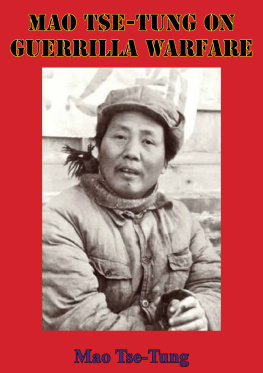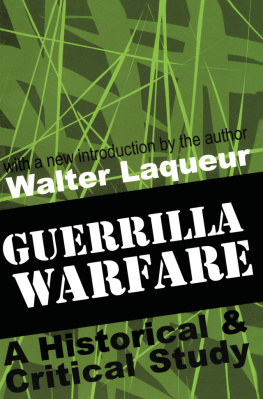ACKNOWLEDGMENTS
For some time now, it has been considered clich to write about various debts owed to esteemed colleagues and supportive loved ones. In fact, academic acknowledgementsand especially those preceding first bookshave seemingly progressed to a point where it has become a clich nouveau even to poke fun at the idea of hackneyed acknowledgments. But as I reflected on my experience with this book, two things became quite clear: first, that no historian ever writes a book by himself or herself, and second, with that maxim in mind, there is simply no way to avoid the unavoidable. So here goes: over the many years spent researching and writing The Ghosts of Guerrilla Memory, I ran up a debt from my mentors, colleagues, friends, and family that would make Congress collectively blush.
My mission control in Athens was second to none and I cannot thank them enough. John Inscoe is an extraordinary historian, a model advisor, and a cherished friend. Without his counsel and (near superhuman) patience, it is safe to say you would not be holding this book. As the dean of the dark turn in Civil War history, Stephen Berrys imprint on this book is undeniableand I cannot even begin to explain how much of a good thing that is. The insights provided by Kathleen Clark and Stephen Mihm concerning guerrilla memorys place in the bigger picture of the American experience have been both eye-opening and invaluable.
As series editors go, Amy Murrell Taylor is a top gun. She has taken exceedingly good care of me and this project from start to finish. Better still, over the last two years, my interactions with Amy, with editorin-chief Mick Gusinde-Duffy, and with everyone at UGA Press have confirmed again and again that UnCivil Wars is the perfect home for guerrilla memory.
And here is where things start to get a little embarrassingnot on account of the quantity of authors, editors, peer reviewers, commentators, and colleagues that are deserving of my profound thanks for one reason or another, but on account of how spoiled I have been to work with and among such a generous, talented group of scholars in the first place: Bill Blair at the Journal of the Civil War Era, Lesley Gordon at Civil War History, Susanna Lee and Katherine Charron at North Carolina State University, and Anne Marshall, Ken Noe, Megan Kate Nelson, LeeAnn Whites, Aaron Sheehan-Dean, Victoria Bynum, Brian McKnight, Brian Miller, Christopher Phillips, Barton Myers, Jim Broomall, Jim Cobb, T. J. Stiles, Kevin Levin, Bruce Nichols, Robert Poister, Trae Welborn, David Thomson, Andrew Fialka, Matthew Stanley, and the late (and dearly missed) Tom Dyer. Joseph Beilein also belongs on this list for several reasonsbut I am proudest of our work on The Civil War Guerrilla: Unfolding the Black Flag in History, Memory, and Myth, a volume we coedited while still in graduate school.
Outstanding intellectual balances are one thing, and financial ones quite another. Writing about the Missouri-Kansas borderlands from an office in Georgia was not always easy, but a number of institutions and people made my research possible. Many thanks belong to the Frances S. Summersell Center, the Willson Center for Humanities and Arts, the Institute for Humane Studies, and Greg and Amanda Gregory, benefactors of the Gregory Graduate Research Fund at the University of Georgia. Additionally, it wasand always will bemy distinct honor to have been named a Dissertation Completion Fellow by the Harry Frank Guggenheim Foundation for 20142015. Their faith in guerrilla memory has been most gratifying and afforded me crucial time for writing and revision.
Both my immediate familymy parents, Jerry and Becky, and my sister, Victoriaand my family-in-lawJack, Peggy, Lindsey, and Edhave been inexhaustible in their support of me and this project. This is especially true of my parents, who have bestowed more love and support on meand shown more interest in a bunch of long-haired, revolver-toting bushwhackersthan I ever had a right to expect. For this, I am truly grateful.
Not everyone meets his future wife on the first day of graduate school, let alone in the office next door. In this regard, I count myself among the luckiest few. Kylie is a marvelous historian in her own right and a powerhouse in the classroom. But she is also my favorite hiking companion (along with our pointer-beagle mix, Cooper), my most trusted editor, my sturdiest support, my closest confidante, and my best friend. I love her dearly. This book is for her.
THE GHOSTS OF GUERRILLA MEMORY
INTRODUCTION
The Borderlands of Memory
In 1884 Century Magazine heralded its coming series, Battles and Leaders of the Civil War. The assortment of personal recollections, historical treatments, and battlefield analytics promised to be a thorough, scholarly, and objective accounting of all things Civil War. Perhaps most important, the contributors to the series included the eras heaviest hitters: P. G. T. Beauregard, John Bell Hood, George McClellan, Oliver Otis Howard, Ulysses S. Grant, and even the much embattled James Longstreet. Through the minds and pens of these men, virtually every state that had seen significant action in the national bloodletting was to receive serious attention.
Enter Samuel Langhorne Clemens, alias Mark Twain.
As first revealed by J. Stanley Mattson in the late 1960s, Century editors intended Twains contributionan autobiographical portrayal of the early days of Civil War Missourito supply a missing link in the Series. From the beginning of the war, guerrillas and irregular violence had plagued Missouri; so, minus the major battles and iconic commanders of the Eastern Theater, responsibility for the state was delegated not to a prestigious general like Grant or McClellan or even to a colonel. Instead, it fell to the author of The Celebrated Jumping Frog of Calaveras County and

